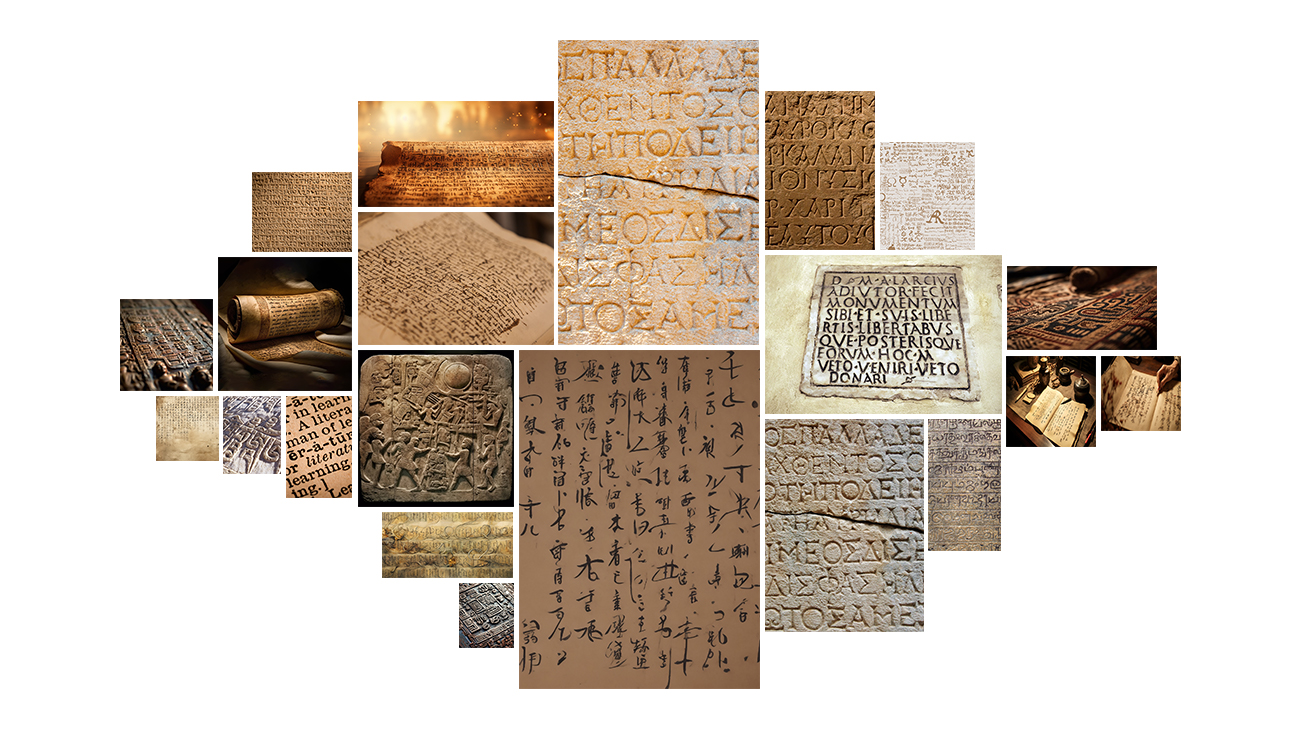Language is a remarkable and quintessential aspect of human existence. It’s a medium through which we communicate, express our thoughts, and preserve our collective history.
The Fascinating Journey of Human Language: A Historical Perspective

Introduction
Language is a remarkable and quintessential aspect of human existence. It’s a medium through which we communicate, express our thoughts, and preserve our collective history. The history of languages is a fascinating journey that spans millennia, evolving in tandem with human civilization. In this blog, we will embark on a captivating exploration of the history of languages, tracing their origins, development, and their profound impact on our world.
The Dawn of Language
The origins of language remain a subject of debate among linguists and scientists. However, it is generally believed that early humans communicated using a combination of gestures, vocalizations, and perhaps a primitive form of sign language. This proto-language gradually evolved into more complex systems as our ancestors began to settle into communities and develop agriculture around 10,000 years ago.
Ancient Writings: The Birth of Writing Systems
One of the most significant milestones in the history of languages is the emergence of writing systems. Writing enabled humans to record their thoughts and knowledge for future generations, leading to the preservation of cultural and historical heritage. The earliest known writing systems include cuneiform in Mesopotamia, hieroglyphs in ancient Egypt, and Chinese characters. These systems developed independently and represented crucial steps in the evolution of written language.
The Greek Influence
The Greek civilization, which flourished around 3,000 years ago, made significant contributions to the development of language and communication. The Greeks gave us the Greek alphabet, which eventually evolved into the Latin alphabet used in most Western languages today. The works of ancient Greek philosophers and scholars, such as Aristotle and Plato, also laid the foundations for much of modern Western thought and linguistic theory.
The Spread of Language Through Empires
Throughout history, the expansion of empires played a pivotal role in spreading languages. The Roman Empire, for example, spread Latin across Europe, giving rise to the Romance languages like French, Spanish, and Italian. Similarly, the British Empire’s global influence helped establish English as a global lingua franca, leading to its widespread use today.
The Silk Road: A Linguistic Melting Pot
The Silk Road, a network of trade routes connecting the East and West, facilitated not only the exchange of goods but also the cross-pollination of languages and cultures. This centuries-long interaction led to the emergence of hybrid languages and the incorporation of foreign words into existing ones. For example, Persian and Arabic influenced the development of Urdu, while Sanskrit and Dravidian languages contributed to the evolution of modern Indian languages.
Language Revival and Standardization
In many cases, languages faced the threat of extinction due to political or cultural pressures. However, concerted efforts have been made to revive endangered languages and preserve linguistic diversity. One notable example is the revival of Hebrew, which went from being a primarily liturgical language to a fully functional, modern language in the late 19th and early 20th centuries.
In the modern era, standardization became crucial for effective communication and governance. Institutions like the Acadmie Franaise in France and the Real Academia Espaola in Spain were established to regulate and standardize their respective languages.
The Digital Age and Language Evolution
The advent of the internet and digital technology has ushered in a new era of language evolution. Online communities and social media platforms have given rise to internet slang, emojis, and abbreviations that have become part of everyday communication. Additionally, machine translation and artificial intelligence are revolutionizing language translation and learning.
Conclusion
The history of languages is a rich tapestry woven with the threads of human evolution, exploration, and cultural exchange. From the earliest forms of communication to the complex linguistic landscape of today’s world, language has been an ever-evolving, indispensable part of human existence. As we continue to explore new frontiers in communication and technology, it is certain that languages will continue to adapt and thrive, reflecting the ever-changing nature of our global society.





